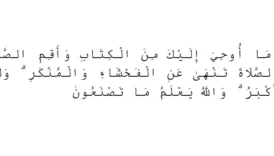The Havas (Secret Properties) and Virtues of Surah Yasin
Surah Yasin, heralded as the heart of the Qur’an, is not merely a text for recitation for Muslims but also a spiritual sanctuary, a source of healing, and a divine grace containing countless secrets. For centuries, scholars, mystics, and spiritual seekers have researched and experienced the “Havas” – the secret properties, virtues, and ways this blessed Surah can be a means for various needs. In this article, we will share some significant Havas applications and virtues of Surah Yasin, distilled from ancient sources and narrations. It must be remembered that the foundation of such spiritual practices lies in sincerity (ikhlas), earnestness, and complete submission to Allah Almighty.
- The Havas (Secret Properties) and Virtues of Surah Yasin
- The Heart Of The Qur'an: Surah Yasin And Its Place In The Knowledge Of Havas
- The Narrated Virtues And Applications Of Surah Yasin
- Narration From Hadrat Abu Bakr (R.A.): For The Acceptance Of Supplications
- Yasin With April Rainwater: A Source Of Thousands Of Cures And Blessings
- Yasin Written On Deerskin On Thursday: Protection Against Old Age And Vigor
- The Intercession Of Surah Yasin On The Day Of Judgment
- The Virtue Of Reciting Yasin On Friday: Purification From Sins
- Yasin And Surah Ad-Dukhan On Friday Night: A Means For Forgiveness Of Sins (Narration From Hadrat Hasan R.A.)
- Three Recitations Of Yasin For Relief From Material And Spiritual Difficulties
- Seventy Recitations Of Yasin And Its Potent Supplication For The Acceptance Of Special Needs
- Steps Of Application
- Special Supplication To Be Recited After Seventy Yasins
- Arabic Text Of The Supplication
- Transliteration Of The Supplication
- Meaning Of The Supplication
- Yasin For Strengthening Memory And Finding Healing (With Rosewater And Saffron)
- Carrying Yasin For Protection From The Evil Eye, Envy, And Whispers
- Yasin And A Special Protection Supplication To Be Safe From The Harm Of Enemies
- Supplication To Be Recited
- Arabic Text Of The Supplication
- Transliteration Of The Supplication
- Meaning Of The Supplication
- Fulfillment Of Needs Through The Verse "Salamun Qawlan Min Rabbin Raheem" (1499 Times)
- A Special Practice To Protect Against The Evils Of Enemies And Nullify Their Effects (Yasin Verses 8-9)
- Details Of Application
- Relevant Verses (Surah Yasin, 8-9)
- Arabic Text Of The Verses
- Transliteration Of The Verses
- Meaning Of The Verses
- An Important Piece Of Advice
- Heart's Expansion And Spiritual Progress With The Verse "Salamun Qawlan Min Rabbin Raheem" (70 Times)
- Yasin Application For Love And Harmony Between Spouses
- Method Of Application
- Special Entrustment Supplication To Be Recited
- Arabic Text Of The Supplication
- Transliteration Of The Supplication
- Meaning Of The Supplication
- Spiritual Treatment With Yasin For Deliverance From Jinn Affliction
- Stages Of Application
- Entrustment And Glorification Supplications To Be Recited
- Arabic Text Of The First Supplication (Entrustment)
- Transliteration Of The First Supplication
- Arabic Text Of The Second Supplication (Allahumma Inni As'aluka...)
- Transliteration Of The Second Supplication
- Arabic Text Of The Third Supplication (Tasbihat - Glorification)
- Transliteration Of The Third Supplication
- Collective Meaning Of The Supplications (Summary)
- Surah Yasin For Healing From Illnesses (With Musk, Saffron, And Rosewater)
- Application And Intention
- Arabic Text Of The Intention
- Transliteration Of The Intention
- Meaning Of The Intention
- Fundamental Principles Of Reciting Surah Yasin And Havas Applications
- Sincerity And Earnestness (Ikhlas)
- Being In A State Of Ablution And Purity
- Having No Doubt
- Final Word
- Bibliography
The Heart Of The Qur’an: Surah Yasin And Its Place In The Knowledge Of Havas
The Prophet Muhammad (peace and blessings of Allah be upon him) imparted special significance to this Surah by saying, “Everything has a heart, and the heart of the Qur’an is Yasin” (Tirmidhi, Fada’il al-Qur’an, 7). Surah Yasin, with its profound messages of Tawhid (Oneness of God), warnings about the Hereafter, instructive accounts from the stories of prophets, and verses that display the infinite power of Allah, is a source of light that renews the faith of believers.
The “knowledge of Havas” (or Ilm al-Havas) is a branch of knowledge concerned with obtaining certain material or spiritual benefits through the recitation of Qur’anic verses and the Beautiful Names of Allah (Asma al-Husna) in specific numbers, at specific times, and according to specific methods. This knowledge acknowledges that verses are not just words but also carry divine energy and a power of effect. Surah Yasin is one of the foremost Surahs in the knowledge of Havas, with countless prescribed practices (tertips).
The Narrated Virtues And Applications Of Surah Yasin
Below are some virtues and applications related to Surah Yasin, mentioned in various sources and reported as experienced. The acceptance and efficacy of these practices undoubtedly depend on the permission of Allah Almighty and the sincerity of the individual.
Narration From Hadrat Abu Bakr (R.A.): For The Acceptance Of Supplications
The first Caliph of Islam, Hadrat Abu Bakr As-Siddiq (may Allah be pleased with him), said: “If a person recites Surah Yasin, and when he reaches the verse ‘Idh ja’ahal mursalun’ (Yasin, 36:13), he opens his hands and supplicates, whatever he asks from Allah the Exalted, his supplication will be accepted.” This narration indicates that supplications made upon reaching certain verses while reciting Surah Yasin may coincide with a special hour of acceptance.
Yasin With April Rainwater: A Source Of Thousands Of Cures And Blessings
It is narrated that if a person writes Surah Yasin on a clean plate, then erases this writing with April rainwater and drinks that water, a thousand cures and healings, a thousand lights, a thousand blessings, a thousand wisdoms, and a thousand mercies will enter that person. Furthermore, it is hoped that they will be cured of a thousand illnesses. April rain is believed to have a special blessing, and when combined with the healing power of Qur’anic verses, it is thought to provide many spiritual and physical benefits.
Yasin Written On Deerskin On Thursday: Protection Against Old Age And Vigor
It has been transmitted that if a person writes Surah Yasin on a Thursday, during the hour of Jupiter (Müşteri), and at a time when the Moon’s light is abundant (full moon or near full moon), on a piece of deerskin and carries it on their right upper arm, they will be safe from the difficulties of old age. Their body will remain strong and vigorous. This practice suggests that Surah Yasin can also be a means for physical health and vitality.
The Intercession Of Surah Yasin On The Day Of Judgment
It has been reported that all Surahs of the Holy Qur’an will intercede for Muslims on the Day of Judgment. However, some Surahs have been granted a more special right of intercession. According to narrations, the greatest right of intercession will be given to Surah Yasin, Surah Al-Hashr, and the Mu’awwizatayn (Surah Al-Falaq and Surah An-Nas). This is great news for believers who regularly recite Surah Yasin and act upon its teachings.
The Virtue Of Reciting Yasin On Friday: Purification From Sins
The Prophet Muhammad (peace and blessings of Allah be upon him) said in a Hadith: “Whoever recites Surah Yasin on a Friday, they will wake up in the morning forgiven, i.e., purified from their sins.” (For the source of this narration, general Hadith collections such as Bayhaqi, Shu’ab al-Iman, can be consulted). When the virtue of Friday is combined with the blessings of Surah Yasin, a door of spiritual purification and forgiveness opens for believers.
Yasin And Surah Ad-Dukhan On Friday Night: A Means For Forgiveness Of Sins (Narration From Hadrat Hasan R.A.)
It is narrated from Hadrat Hasan (may Allah be pleased with him), the grandson of the Prophet: “If a person recites Surah Yasin and Surah Ad-Dukhan on Friday night with sincere intention and repents to Allah Almighty, Allah the Exalted will forgive all their sins.” This practice is an important opportunity, especially for those who wish to seek forgiveness for their sins by taking advantage of the blessings of Friday night.
Three Recitations Of Yasin For Relief From Material And Spiritual Difficulties
If a person faces worldly difficulties such as hunger, thirst, debt, or various spiritual distresses, and recites Surah Yasin three times with sincere intention, it is hoped that, by the permission of Allah Almighty, it will suffice for all their needs and they will be relieved of their troubles. What is important here is that the recitation is done with sincerity and earnestness, and without any doubt or skepticism.
Seventy Recitations Of Yasin And Its Potent Supplication For The Acceptance Of Special Needs
This is a recommended practice for someone who has a very important and urgent need:
Steps Of Application
The person performs ablution properly, and without speaking to anyone, recites Surah Yasin seventy (70) times in a single sitting. Immediately after reciting the first Yasin, they recite the supplication mentioned below seven (7) times. It is narrated that when this method is observed, the Ervah-ı Tayyibe (Pure Spirits) – who are devoted to Surah Yasin, are subservient to it (assigned to its service), and serve those who recite this blessed Surah until the Day of Judgment, providing help to the extent permitted by Allah Almighty – will rush to assist.
Special Supplication To Be Recited After Seventy Yasins
Arabic Text Of The Supplication
أَجِيبُوا أَيَّتُهَا الْجَمَاعَةُ الْمُسَخَّرُونَ الْمُطِيعُونَ لِهَذِهِ السُّورَةِ الْمُبَارَكَةِ بِحَقِّ أَنْبِيَاءِ اللهِ وَأَوْلِيَائِهِ وَبِحَقِّ خَلْقِهِ، اجْعَلُوا كَلِمَاتِي سَارِيَةً وَقَوْلِي مَسْمُوعًا مَقْبُولًا، وَاكْفُوا مُهِمَّاتِي قَرِيبًا غَيْرَ بَعِيدٍ، وَأَمِدُّونِي وَأَعِينُونِي فِي الْأُمُورِ كُلِّهَا الْكُلِّيَّةِ وَالْجُزْئِيَّةِ، بِحَقِّ إِنَّهُ مِنْ سُلَيْمَانَ وَإِنَّهُ بِسْمِ اللهِ الرَّحْمَنِ الرَّحِيمِ. الْوَحًا الْوَحًا الْوَحًا، الْعَجَلَ الْعَجَلَ الْعَجَلَ، السَّاعَةَ السَّاعَةَ السَّاعَةَ. إِنَّهُ عَلَى مَا يَشَاءُ قَدِيرٌ وَبِالْإِجَابَةِ جَدِيرٌ.
Transliteration Of The Supplication
Ecîbû eyyetühel cemâatül musahharûnel mutîûne li hâzihis sûretil mübâraketi bi hakki enbiyâillâhi ve evliyâihî ve bi hakki halkıhî, ic’alû kelimâtî sâriyeten ve kavlî mesmûan makbûlen, vekfu mühimmâtî karîben ğayra baîdin, ve emiddûnî ve eînûnî fil umûri küllihal külliyyeti vel cüz’iyyeti, bi hakki innehû min Süleymâne ve innehû Bismillâhirrahmânirrahîm. El-Vâhan, El-Vâhan, El-Vâhan. El-Acel, El-Acel, El-Acel. Es-Sâate, Es-Sâate, Es-Sâate. İnnehû alâ mâ yeşâu kadîr, ve bil icâbeti cedîr.
Meaning Of The Supplication
“O community, subservient and obedient to this blessed Surah! By the right of the Prophets of Allah, His saints (Awliya), and by the right of His creation, answer my call! Make my words effective and my speech heard and accepted. Attend to my important affairs promptly, not delayed. Aid me and assist me in all matters, both major and minor, by the right of ‘Indeed, it is from Solomon, and indeed, it is [initiated] in the name of Allah, the Entirely Merciful, the Especially Merciful.’ [Qur’an, An-Naml 27:30]. Quickly, quickly, quickly! Swiftly, swiftly, swiftly! Immediately, immediately, immediately! Indeed, He has power over all things He wills, and He is worthy of responding to supplications.”
Yasin For Strengthening Memory And Finding Healing (With Rosewater And Saffron)
If a person writes Surah Yasin on a plate with rosewater and saffron, then erases this writing with April rainwater and continues to drink it at the same time every day, by Allah’s permission, they will no longer forget anything they hear, and their intellect and understanding (fahm) will increase. It is also mentioned that this practice can be a cure for prostate disease.
Carrying Yasin For Protection From The Evil Eye, Envy, And Whispers
Whoever writes Surah Yasin and carries it on their right arm will be safe from the evil eye and envy. It is also narrated that they will be protected from whispers (waswasa) and vain fancies (wahm). This indicates that Surah Yasin can serve as a spiritual shield.
Yasin And A Special Protection Supplication To Be Safe From The Harm Of Enemies
If a person fears harm from another or from an oppressor, and they recite Surah Yasin followed by the supplication below, they will be safe from the harm of that oppressor.
Supplication To Be Recited
Arabic Text Of The Supplication
بِسْمِ اللهِ الَّذِي لَا إِلَهَ إِلَّا هُوَ الْحَيُّ الْقَيُّومُ. بِسْمِ اللهِ الَّذِي لَا إِلَهَ إِلَّا هُوَ ذُو الْجَلَالِ وَالْإِكْرَامِ. بِسْمِ اللهِ الَّذِي لَا يَضُرُّ مَعَ اسْمِهِ شَيْءٌ فِي الْأَرْضِ وَلَا فِي السَّمَاءِ وَهُوَ السَّمِيعُ الْعَلِيمُ. اللَّهُمَّ إِنِّي أَعُوذُ بِكَ مِنْ شَرِّ فُلَانِ بْنِ فُلَانٍ.
Transliteration Of The Supplication
Bismillâhillezî lâ ilâhe illâ Hüvel Hayyul Kayyûm. Bismillâhillezî lâ ilâhe illâ Hüve Zülcelâli vel İkrâm. Bismillâhillezî lâ yedurru measmihî şey’ün fil ardı velâ fissemâi ve Hüves Semîul Alîm. Allâhümme innî eûzü bike min şerri fülân ibni fülân. (Here, instead of “fülân ibni fülân,” the name of the person whose harm is feared and their mother’s name are mentioned.)
Meaning Of The Supplication
“In the name of Allah, besides Whom there is no god, the Ever-Living, the Self-Sustaining. In the name of Allah, besides Whom there is no god, Possessor of Majesty and Honor. In the name of Allah, with Whose name nothing on earth or in heaven can cause harm, and He is the All-Hearing, the All-Knowing. O Allah! Indeed, I seek refuge in You from the evil of [so-and-so, son of so-and-so].”
Fulfillment Of Needs Through The Verse “Salamun Qawlan Min Rabbin Raheem” (1499 Times)
It is narrated that if the 58th verse of Surah Yasin, “Salâmun qawlan min Rabbin Rahîm” (Peace! A word from a Merciful Lord), is recited one thousand four hundred and ninety-nine (1499) times in a single sitting, whatever wish the reciter has will be granted by Allah’s permission. This verse is believed to have a special effect and blessing.
A Special Practice To Protect Against The Evils Of Enemies And Nullify Their Effects (Yasin Verses 8-9)
If a person suffers from the evil words or malicious gazes of their enemies, or experiences harm from them and wishes for this harm to be somehow averted, the following practice is recommended:
Details Of Application
It is said that if the part of Surah Yasin starting from the verse “Innâ ja’alnâ fî a’nâqihim aghlâlan fahiya ilal adhqâni fahum muqmahûn” (Yasin, 36:8) up to the end of “Lâ yubsirûn” (Yasin, 36:9) is written on a copper plate on a Saturday at sunrise, and then buried in the direction of the enemies’ houses, their enemies will not be free from trouble.
Relevant Verses (Surah Yasin, 8-9)
Arabic Text Of The Verses
إِنَّا جَعَلْنَا فِي أَعْنَاقِهِمْ أَغْلَالًا فَهِيَ إِلَى الْأَذْقَانِ فَهُم مُّقْمَحُونَ (8)
وَجَعَلْنَا مِن بَيْنِ أَيْدِيهِمْ سَدًّا وَمِنْ خَلْفِهِمْ سَدًّا فَأَغْشَيْنَاهُمْ فَهُمْ لَا يُبْصِرُونَ (9)
Transliteration Of The Verses
- Innâ ja’alnâ fî a’nâqihim aghlâlen fahiya ilal adhqâni fahum muqmahûn.
- Wa ja’alnâ min bayni aydîhim saddan wa min khalfihim saddan fa’aghshaynâhum fahum lâ yubsirûn.
Meaning Of The Verses
- “Indeed, We have put shackles on their necks, and they are raised up to their chins, so their heads are forced aloft (they cannot see before them).”
- “And We have put before them a barrier and behind them a barrier and covered them, so they do not see.”
An Important Piece Of Advice
The following advice mentioned in the text regarding such practices is very important: “However, our advice is to entrust the matter to Allah Almighty, even if it concerns an enemy. This is what befits a dervish (a person of spiritual inclination).” While it is legitimate for an oppressed person to seek their rights, entrusting the situation to Allah instead of acting out of revenge is preferable in terms of spiritual maturity and submission.
Heart’s Expansion And Spiritual Progress With The Verse “Salamun Qawlan Min Rabbin Raheem” (70 Times)
If a person writes the verse “Salâmun qawlan min Rabbin Rahîm” seventy (70) times on a glass plate or a similar clean object on the first Monday of an Arabic month, then erases this writing with rainwater and drinks it, whatever wish they have will be fulfilled, and their heart will expand. It is mentioned that this practice is particularly beneficial for those on the Sufi path.
Yasin Application For Love And Harmony Between Spouses
To reconcile two married people who are estranged or experiencing discord, and to create love (muhabbah) and affection (ulfah) between them, the following application is recommended:
Method Of Application
Surah Yasin is written on a piece of white paper with a mixture of musk, saffron, and rosewater as ink, at a good hour (an astrologically favorable time). At the end of the writing, the names of the estranged individuals and their mothers’ names are added. Then, Surah Yasin is recited seven (7) times over this paper. After each recitation, the entrustment supplication below is read. If one of the spouses then carries this folded paper, it is hoped that their relationship will mend and lasting love and affection will be established between them.
Special Entrustment Supplication To Be Recited
Arabic Text Of The Supplication
تَوَكَّلُوا يَا خُدَّامَ هَذِهِ الْأَسْمَاءِ وَالسُّورَةِ الشَّرِيفَةِ بِجَلْبِ وَجَذْبِ قَلْبِ فُلَانِ بْنِ فُلَانٍ
Transliteration Of The Supplication
Tevekkelû yâ khuddâma hâzihil asmâi was sûratish sharîfati bi jalbi wa jazbi qalbi fülân ibni fülân. (Here, instead of “fülân ibni fülân,” the name of the person whose love is desired and their mother’s name are mentioned.)
Meaning Of The Supplication
“O servants of these names and this noble Surah! By the leave of Allah, undertake the task of attracting and drawing the heart of [so-and-so, son of so-and-so].”
Spiritual Treatment With Yasin For Deliverance From Jinn Affliction
To deliver a person believed to be afflicted by the negative influences of jinn, the following procedure is applied:
Stages Of Application
A piece of white paper and a handful of clean earth are taken. Surah Yasin is written on the paper three (3) times. It is also recited three (3) times and blown onto both the earth and the paper. After the recitation is complete, the supplications below are read. Then, this earth is buried in a clean place where no foot will tread. It is stated that with this application, the person afflicted by jinn will recover quickly, by the permission of Allah Almighty.
Entrustment And Glorification Supplications To Be Recited
Arabic Text Of The First Supplication (Entrustment)
تَوَكَّلُوا يَا خُدَّامَ هَذِهِ السُّورَةِ الشَّرِيفَةِ بِخَلَاصِ فُلَانِ بْنِ فُلَانَةَ بِحَقِّهَا عَلَيْكُمْ وَطَاعَتِهَا لَدَيْكُمْ
Transliteration Of The First Supplication
Tevekkelû yâ khuddâma hâzihis sûratish sharîfati bi khalâsi fülân ibni fülânata bi haqqihâ alaykum wa tâ’atihâ ladaykum. (Here, instead of “fülân ibni fülânata,” the name of the person and their mother’s name are mentioned.)
Arabic Text Of The Second Supplication (Allahumma Inni As’aluka…)
اللَّهُمَّ إِنِّي أَسْأَلُكَ يَا اللهُ يَا سَمِيعُ يَا رَفِيعُ يَا رَبِّ
Transliteration Of The Second Supplication
Allâhümme innî as’aluka yâ Allâhu yâ Samî’u yâ Rafî’u yâ Rabbî. (7 times)
Arabic Text Of The Third Supplication (Tasbihat – Glorification)
سُبْحَانَ الْمُفَرِّجِ عَنْ كُلِّ مَحْزُونٍ. سُبْحَانَ الْمُنَفِّسِ عَنْ كُلِّ مَسْجُونٍ. سُبْحَانَ الْعَالِمِ بِالْكُلِّ. سُبْحَانَ الَّذِي أَمْرُهُ بَيْنَ الْكَافِ وَالنُّونِ. سُبْحَانَ الَّذِي إِذَا أَرَادَ شَيْئًا أَنْ يَقُولَ لَهُ كُنْ فَيَكُونُ. فَسُبْحَانَ الَّذِي بِيَدِهِ مَلَكُوتُ كُلِّ شَيْءٍ وَإِلَيْهِ تُرْجَعُونَ.
Transliteration Of The Third Supplication
Sübhânel müferriji an kulli mahzûnin. Sübhânel müneffisi an kulli mescûnin. Sübhânel âlimi bil kulli. Sübhânellezî emruhû baynal kâfi wan nûni. Sübhânellezî izâ erâde shay’an an yaqûla lahû kun fayakûn. Fa sübhânellezî bi yedihî malakûtu kulli shay’in wa ilayhi turja’ûn.
Collective Meaning Of The Supplications (Summary)
The first supplication is a call to the servants of this noble Surah to undertake, by Allah’s leave, the deliverance of the named person from their afflictions. The second supplication is an entreaty to Allah by His names Ya Allah, Ya Sami (All-Hearing), Ya Rafi (Exalter), Ya Rabb (Lord). The third supplication is the glorification and sanctification of Allah Almighty, Who relieves every sorrowful person, Who frees every captive, Who knows all things, Whose command is between “Kaf” and “Nun” (i.e., Who says “Be!” and it is), Who, when He wills a thing, merely says to it “Be!” and it is, in Whose hand is the dominion of all things, and to Whom all will return.
Surah Yasin For Healing From Illnesses (With Musk, Saffron, And Rosewater)
With the intention of finding healing from various illnesses, Surah Yasin is written on a glass plate with a mixture of musk, saffron, and rosewater. This writing is then erased with rainwater. If one drinks from that water after reciting the intention statement below, it is hoped that healing will be found, by the permission of Allah.
Application And Intention
Arabic Text Of The Intention
نَوَيْتُ الشِّفَاءَ بِآيَاتِ اللهِ الْعِظَامِ وَأَسْمَائِهِ الْكِرَامِ
Transliteration Of The Intention
Nawaytush shifâ’a bi âyâtillâhil izâmi wa asmâihil kirâm.
Meaning Of The Intention
“I have intended to seek healing through the great verses of Allah and His noble names.”
Fundamental Principles Of Reciting Surah Yasin And Havas Applications
There are some fundamental principles that a person wishing to benefit from the Havas properties of Surah Yasin or other Qur’anic verses should observe:
Sincerity And Earnestness (Ikhlas)
As with all forms of worship and supplication, the most important condition in reciting Surah Yasin and in Havas applications is sincerity (ikhlas), meaning to do everything solely for the pleasure of Allah. Actions performed without sincerity in the heart will have a weak effect.
Being In A State Of Ablution And Purity
Respect for the Holy Qur’an and its verses is essential. Therefore, when reciting or writing Surah Yasin, one should be in a state of ablution (wudu) and pay attention to physical and environmental cleanliness.
Having No Doubt
It is important not to harbor any doubt in the heart about whether the practice will be effective, and to turn to the power of Allah Almighty and the blessings of His verses with complete faith. Hesitations like “Will it really happen?” can negatively affect the flow of spiritual energy.
Final Word
Surah Yasin is one of the infinite treasures of mercy that Allah Almighty has bestowed upon us. The virtues and secrets of this blessed Surah are not limited to what has been described. Every believer can establish a different connection with Surah Yasin on their own spiritual journey and benefit from its grace according to their share. What is important is to approach this divine word with respect, faith, sincerity, and submission. May our Lord illuminate our hearts with the light of Surah Yasin, relieve our distresses, and make us recipients of its intercession. Amen.
Bibliography
The information in this article has been compiled from narrations and practices commonly found in traditional Islamic literature on “Havas” and “Virtues.” Such information can generally be found in works like the following, or in quotations from these works:
- Imam Al-Ghazālī, Iḥyāʾ ʿUlūm al-Dīn (The Revival of the Religious Sciences) (Touches upon the virtues of supplications and verses in certain sections).
- Imam Yusuf an-Nabhānī, Saʿādat al-Dārayn fī Salāt ʿalā Sayyid al-Kawnayn (Bliss of the Two Abodes in Prayers upon the Master of Both Worlds) (and similar collections of supplications and prayers).
- Shams al-Maʿārif al-Kubrā (The Great Sun of Gnosis) (A famous work on the science of Havas attributed to Aḥmad ibn ʿAlī al-Būnī, but its content should be approached with caution).
- Various collections of supplications and litanies, such as Majmūʿat al-Aḥzāb.
- Sections on virtues in Hadith collections (e.g., works by Tirmidhī, Bayhaqī, Daylamī).
- Advice and practices found in hagiographies (Manāqib) and biographical accounts of saints (Awliya).





